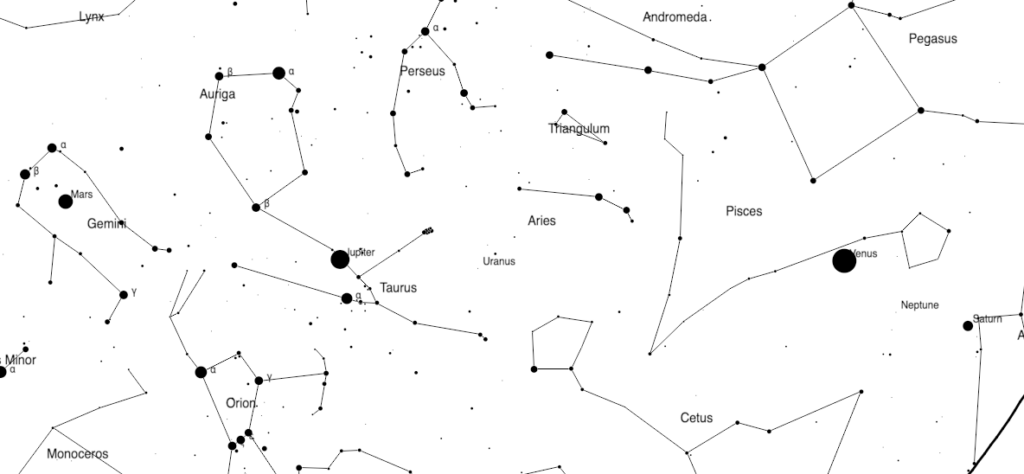Have you already admired the planets in the sky? If not, then it’s about time! Right now there’s a rare cosmic spectacle to behold: Six planets of our solar system are almost aligned in a straight line. Such a constellation is not an everyday occurrence – and the next comparable one won’t happen until 2040. So, grab your telescopes!
When and where can you see the planets?
The best time for observation is between 6:30 PM and 9:00 PM (CET).
Venus, Mars, Jupiter, and Saturn shine brightly enough to be seen with the naked eye. However, for Uranus and Neptune, you’ll need a telescope or at least a good pair of binoculars.
These planets are in alignment
Venus
The brightest of them all, easy to find in the Southwest. It remains visible until mid-March.
Jupiter
After dusk our largest planet appears prominently in the Southern sky and is the brightest object after Venus and the Moon.
Mars
Recognizable as a distinct red point in the Southeast, Mars becomes increasingly brighter throughout the month, reaching a magnitude of zero by March 11. At that point it will be as bright as the brightest stars.
Saturn
Currently still visible, but it is sinking lower towards the Western horizon. As the days pass it dissipates more into the twilight glow. Our “Lord of the Rings” is best to be observed until the end of February.
Uranus & Neptune
Uranus (between Taurus and Aries) remains visible until mid of April, while Neptune (between Venus and Saturn) disappears by mid-February.
Telescopes, binoculars or a star field viewer , as well as other suitable accessories for your observations, are of course available at our shop. Feel free to browse our products! Thanks to our fast shipping, in-stock items will arrive at your home within just a few days.


